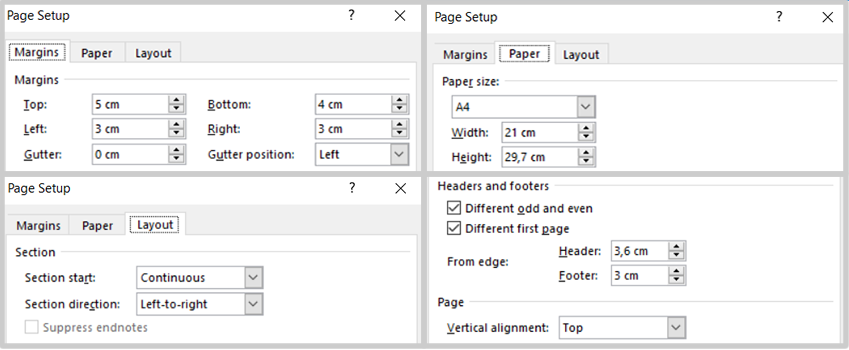Submissions
Submission Preparation Checklist
As part of the submission process, authors are required to check off their submission's compliance with all of the following items, and submissions may be returned to authors that do not adhere to these guidelines.- Originality Standards: This article has not been published elsewhere, nor has it been sent to a publisher for publication.
- Language: Manuscript is prepared in Turkish, English or Arabic language.
- File Format: The manuscript has been written in Microsoft Word format and does not exceed 3 MB size.
- Article Length: Article length is between 3.000 (min) and 5.000 (max) words including references, tables and appendices. Number of pages in the article is not more than 20.
- Article Title: The length of the Article Title is not more than 10 words.
- Abstract: The length of the abstract is not more than 150 words.
- Keywords: Maximum 5 keywords have been identified.
- Font Type, Size and Spacing: Lucida Sans Unicode font with the size of 10 and single line spacing.
- Page Margins: Margin standards are applied as 5 cm on the top, 4 cm at the bottom, 3 cm from the right and left.
- Headings: First level headings are bold and the lower rank headings are italics. The sizes for first level headings and lower rank headings are 16 and 12, respectively.
- Tables and Figures: Tables and Figures contain Titles and Numbers. Figures are in tif, .jpeg, or .bmp formats with at least 300dpi resolution and minimum 10cm wide.
- References: References are prepared in APA style.
Articles
In this main section articles (12-13 per issue) peer reviewed by at least two referees are published.Book Reviews
In this section, book reviews are published.
Symposium / Congress
In this section, papers that are accepted by the referees and prepared in accordance with the rules of the journal are published.
Copyright Notice
All manuscripts which are submitted to the Journal of Ibn Haldun Studies should not be published, accepted and submitted for publication elsewhere.
In case an article is accepted for publication it is allowed to combine the article with other researches, to conduct a new research on the article or to make different arrangements on condition that the same license is used including the commercial purpose.
As an author of an article published in Journal of Ibn Haldun Studies you retain the copyright of your article and you are free to reproduce and disseminate your work.
Privacy Statement
Definition and Scope
This privacy policy applies only to Journal of Ibn Haldun Studies website. You agree to this privacy policy when you use the Jorunal website.
The names and email addresses entered in this journal site will be used exclusively for the stated purposes of this journal and will not be made available for any other purpose or to any other party.
Jorunal website may contain links to other websites. This privacy policy does not apply to other websites linked with Journal website. Before using linked websites, you should review the respective websites privacy policies.
Personal Data
Journal of Ibn Haldun Studies website does not collect any data that can identify people such as name, surname, e-mail, telephone, address. However, it may collect visitors information only for statistical evaluation, website maintenance, management and improve purposes. The information may include IP addresses, browser information, operating systems, access time, navigation pages. The information collected is used for statistical evaluation, website maintenance, management and improve purposes and is not used for other purposes and is not shared with third parties except for matters of legal obligation and state authorities.
What is a Cookie?
A cookie is information that is stored on your device (desktop, laptop, mobile, etc.) by websites you visit, and is used in small text files. Cookies are often used to improve your website usage experience.
Our Cookie Policy
On Journal website, cookies are used for technical and analytical purposes. By continuing to use the Journal website, you agree to the use of cookies described below.
- Technical Cookies: Cookies required for the website to work: Session cookies and language option cookies.
- Third Party Cookies: There are no third-party cookies used currently on Journal website. It will be described under this heading when used. These third-party applications have their own privacy policies and Journal website has no responsibility for the privacy policies of these third-party applications. You can review their own privacy policies from their official websites.
Managing Cookies
Almost all Internet browsers have some settings for managing cookies. Most browsers are set to accept cookies in the initial setup. You can set your browser to alert you when all cookies are blocked or a cookie is sent to your device. See the help section of the browser you are using to find out how to do it, or visit the official website.
Change to the Privacy Policy
If necessary we may make changes to our Privacy Policy. The changes will be published on this page and will be valid as of the date of publication.
For any questions and suggestions regarding the Privacy Policy, please contact the Journal website using this link.







